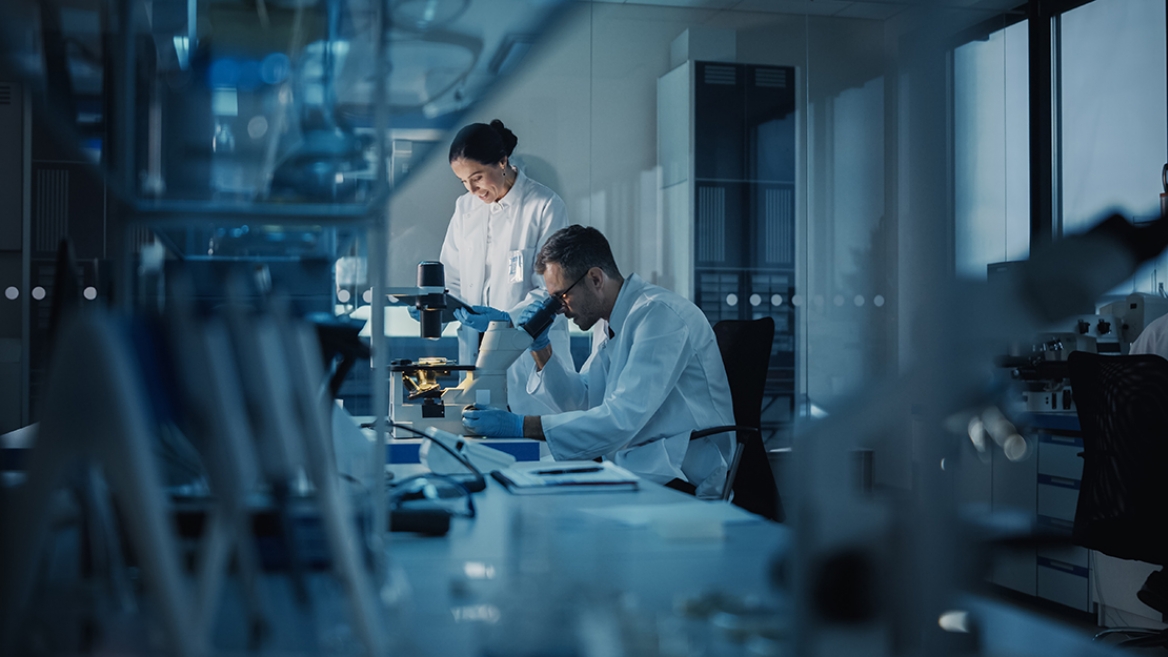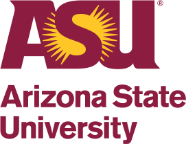
A garden of innovation: Mayo Clinic, ASU seed grant to fund medical discoveries
—
Endometriosis diagnostics. Tumor detection. Blood-based biomarkers. Bone repair.
These are just a handful of the medical solutions Arizona State University researchers and Mayo Clinic doctors aim to explore through an innovative funding opportunity concentrated on collaboration between physicians and academics.
The Mayo Clinic and ASU Alliance for Health Care Seed Grant Program empowers investigators from both institutions to kickstart joint research projects and build a foundation to attract additional funding. The program also provides researchers with the unique advantage of finding solutions for complex biomedical problems that might not have been solved otherwise.
“When you try to take the most complex problem and solve it, at the same time you end up solving a lot of simpler problems more effectively,” says Neal Woodbury, chief science and technology officer at ASU Knowledge Enterprise.
When awarding grants, the program considers projects that encompass the following factors: transforming the health care workforce, optimizing health and the human body, and establishing connected health care delivery and biomedical innovation. Among these key elements, the project should demonstrate meaningful collaboration between investigators at ASU and Mayo Clinic.
“We want this to be, more than anything, a catalyst — a spark that continues to foster our collaborative efforts,” says Rafael Fonseca, chief innovation officer at Mayo Clinic.
The 2023 seed grant projects and its lead investigators are:
Automating data extraction from electronic health records and reasoning to assist treatment decision-making for prostate cancer
Chitta Baral, professor, ASU School of Computing and Augmented Intelligence
Dr. Irbaz Bin Riaz, oncologist, Mayo Clinic
Machine Learning Design to Predict and Manage Postprandial Hyperglycemia in Patients with Type 1 Diabetes
Hassan Ghasemzadeh, associate professor, ASU College of Health Solutions
Dr. Bithika Thompson, endocrinologist, Mayo Clinic
Characterizing health care provider and patient experiences with implementing genomic medicine in a federally qualified health center
Rachel Gur-Arie, assistant professor, ASU Edson College of Nursing and Health Innovation
Richard Sharp, biomedical ethics, Mayo Clinic
The use of itaconate as an immunometabolite for improved bone repair
Julianne Holloway, assistant professor, ASU School for Engineering of Matter, Transport and Energy; associate faculty, Biodesign Center for Molecular Design and Biomimetics
Jennifer Westendorf, orthopedic surgery consultant, Mayo Clinic
A Holistic Approach for Improved Diagnosis and Management of BRCA Mutations in Breast Cancer Using Advanced -omics and Imaging Technologies
Ashif Iquebal, assistant professor, ASU School of Computing and Augmented Intelligence
Dr. Bhavika Patel, breast imaging radiologist, Mayo Clinic
Evolutionary Therapy to Enhance Management of Gastrointestinal Malignancies
Carlo Maley, professor, ASU School of Life Sciences; associate professor, Biodesign Center for Biocomputing, Security and Society
Dr. Ryan Carr, oncologist, Mayo Clinic
Extracorporeal Robotic Tissue Retraction with Endoscopic Resection of Complex Gastrointestinal Neoplasms
Hamidreza Marvi, associate professor, ASU School for Engineering of Matter, Transport and Energy
Dr. Terry Jue, gastroenterologist, Mayo Clinic
A Biomimetic and Organotypic Model of Brain Tumor-CAR-T Cell Interactions
Mehdi Nikkhah, associate professor, ASU School of Biological and Health Systems Engineering; assistant professor, Biodesign Virginia G. Piper Center for Personalized Diagnostics
Gloria Kim, immunologist, Mayo Clinic
Quantitative Gait Analysis as a novel diagnostic tool and clinical biomarker for Atypical Parkinsonian Syndromes
Daniel Peterson, associate professor, ASU College of Health Solutions
Dr. Shyamal Mehta, neurologist, Mayo Clinic
Detection and quantification of key biomarkers in CAR T-cell therapy with Quantum-NanoElectroPore (Q-NEP)
Quan Qing, associate professor, ASU Department of Physics; faculty member, Biodesign Center for Bioelectronics and Biosensors
Dr. Januario Castro, oncologist, Mayo Clinic
Conductivity Tensor Imaging to characterize the neuronal mechanisms of brain invasion in High-Grade Glioma (HGG)
Rosalind Sadleir, associate professor, ASU School of Biological and Health Systems Engineering
Dr. Leland Hu, neuroradiologist, Mayo Clinic
3D Printing-enabled Regenerative Medicine for Pelvic Organ Prolapse (POP) Treatment
Xiangfan Chen, assistant professor, ASU School of Manufacturing Systems and Networks
Jessica Lancaster, immunology consultant, Mayo Clinic
Engineering targeted strategies to diagnose and treat endometriosis
Jessica Weaver, assistant professor, ASU School of Biological and Health Systems Engineering
Dr. Megan N. Wasson, gynecologic surgeon, Mayo Clinic
Investigation of mechanisms of muscle atrophy and weakness post-ACL injury and reconstruction
Jeanne Wilson-Rawls, associate professor, ASU School of Life Sciences
Dr. Kostas Econompoulos, orthopedic surgeon, Mayo Clinic
Cardiac Amyloidosis, The Crucial Need for Blood-based Biomarkers for Early Disease Detection
Craig Woods, director of research projects, Infectious Disease, Institute for Future Health
Dr. Julie Rosenthal, cardiologist, Mayo Clinic
Adaptive Self-Supervised Contrastive Learning for Tumor Detection and Treatment Evaluation
Yingzhen Yang, assistant professor, ASU School of Computing and Augmented Intelligence
Dr. Alvin C. Silva, radiologist, Mayo Clinic
Written by Sophia Balasubramanian
